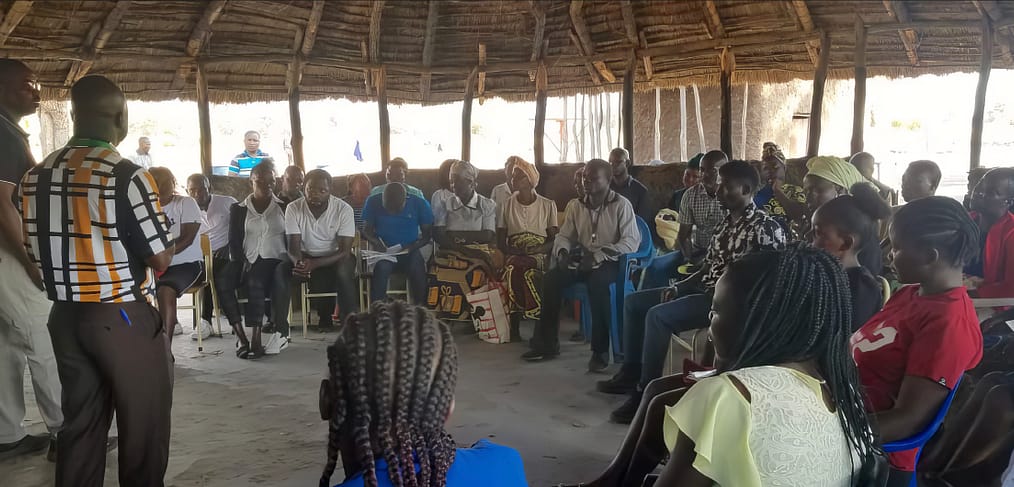
Investigating the socio-economic conditions of communities in Luengue-Luiana National Park, Angola
Luengue-Luiana National Park in Angola is part of the Kavango-Zambezi Trans-frontier Conservation Area (KAZA TFCA) that covers parts of five African countries (Angola, Botswana, Namibia, Zambia and Zimbabwe). This Park covers 22,610 km², and is patrolled by government rangers and 27 community game guards trained by ACADIR-Angola. This national park is not exclusively for animals, however, as 49,300 people currently live within its boundaries. In line with the other KAZA TFCA countries, Angola wants to develop a wildlife economy that will support people and wildlife living in this landscape.
Developing a wildlife economy requires extensive knowledge on how people are currently living in the park and whether their livelihoods have improved as a result of external interventions. Consequently ACADIR-Angola partnered with Bio-Hub Trust from Zimbabwe to carry out a socio-economic survey in Angola as part of a larger KAZA survey funded by WWF-Germany. This survey is a follow up from a similar one conducted 10 years ago (2013), which provided a baseline for comparison. The results of both surveys should reveal whether people’s livelihoods have improved as a result of these interventions.
In the first phase of the survey, seven community members and four staff members from ACADIR (eight men and three women) were selected and trained to conduct the survey among the communities living in Luengue-Luiana. The surveyors used the Kobo application installed on a tablet to collect information from 197 households in the Mucusso and Jamba communities that were surveyed in 2013. This household survey was designed to find out how people used their natural and human resources to support their families, and what challenges they face while living in the park.
The second phase involved a group discussion with 80 members of the Luengue-Luiana and Mucusso communities and other relevant local stakeholders: traditional authorities, members from the local government, youth, farmer cooperative members, natural resources management committees, and civil society, to discuss the socio-economic issues more broadly. Facilitators asked several different questions under a variety of thematic areas, such as livelihood assets, social risks, governance and management of natural resources and capacity building.
The data and results from this survey are still being processed, and the final results will be shared with the KAZA-Secretariat and ACADIR. We will use this information to align the Angolan component of the KAZA-TFCA project with the socio-economic status and needs of the people living in Luengue-Luiana.

One exercise involved using logs and paper to think outside of the box.
During discussions, participants were encouraged to think outside the box by the facilitators from Bio-Hub and ACADIR to find solutions to the problems they have experienced. Drought and associated lack of drinking water was a prominent problem that many people faced. They suggested drilling boreholes that would provide water for the community and wildlife, while also boosting agricultural production.
Human-wildlife conflict was another key challenge, and the communities suggested expanding the installation of electrified fences around crop fields to protect them from wild animals. They also suggested that compensation initiatives like those used in Botswana and Namibia (neighbouring KAZA countries) should be tested in Angola to reduce the cost of living with wildlife.

The resulting diagram produced from the paper and logs exercise.
The people living in Mucusso and Jamba communities expressed interest in intensifying agricultural and fishing activities, which are currently their main source of income. These communities further requested a training centre for people to receive skills in many different fields and thus contribute to community development and job creation.
The communities wanted ACADIR to increase the number of projects in the area by channelling more donor funds towards projects that would have a positive impact on community development and nature conservation. They also encouraged stronger relationships and collaboration among all involved stakeholders in KAZA-TFCA for better implementation of project activities.
This was the first time that Angola, especially the communities and interested stakeholders in Luengue Luina and Mucusso, have participated in socio-economic group discussions, whilst other countries in KAZA-TFCA have been doing this for more than ten years. The group discussions to analyse the problems and come up with potential solutions were stimulating and we look forward to implementing some of these ideas in future.

